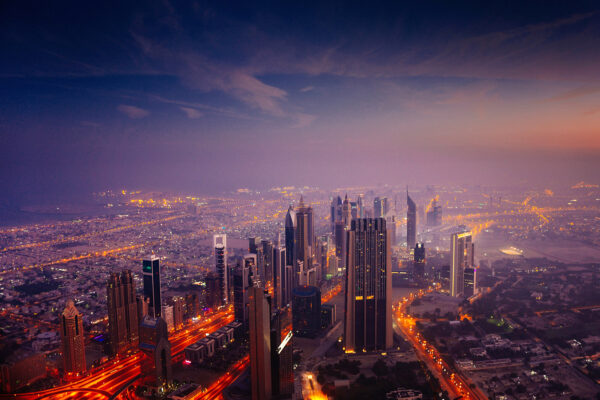
As the European migrant crisis is giving way to unprecedented humanitarian efforts from first Germany and now the Vatican, more than a few analysts have noted that for all Europe’s generosity, only a few Arab states have opened their doors to the masses fleeing war in Iraq and Syria.
That’s curious when one considers that the ultra-rich Gulf Cooperation Council states are far closer than Europe and the journey there involves no dangerous seafaring. Bahrain, Kuwait, Oman, Qatar, Saudi Arabia and the United Arab Emirates all have considerable oil and gas reserves and their citizens are much richer than those of other Arab states. Yet GCC governments have stayed mum even as the #ArabConscience has begun trending regionally. Why?
A history of demographic inferiority
For all their wealth, the Gulf states have a major demographic disadvantage. When independence was conferred on most of them by Britain, with Kuwait leading the way in 1963 and the rest following in 1971, most were sparsely inhabited deserts. Even more established Saudi Arabia, with its larger and older population, didn’t have the human capital to fully utilize its oil wealth.
The solution was to import millions of foreigners. Their labor built the region’s cities, highways and economic infrastructure, allowing local, or mahali, citizens to avoid involving themselves in anything but cushy government jobs.
While that pleased the citizens, it also created a deep imbalance. Today, the Emirates and Qatar have populations made up of nearly 90 percent foreigners and they have no clear system to nationalize even long-term residents. Saudi Arabia’s population has nine million expats, nearly a third of the total. No GCC state has more than 70 percent local citizens.
A shaky relationship between the GCC and the rest of the Arab world
GCC states have similar cultural and political characteristics and are ruled by increasingly paranoid leaders. They are the last absolute monarchies in the world and pin their power to native citizens who demand cradle-to-grave welfare systems. Tribal loyalties are decided by gross handouts: Saudi Arabia’s response to the “Arab Spring” protests was to spend $130 billion on assorted projects and bribes to forestall unrest.
Other Arab states have evolved beyond monarchy and tension between them and the GCC has ebbed and flowed. Syria, a former Soviet client, has never had a good relationship with the American allies in the Gulf.
A fragile political environment
Only Kuwait offers functional elections and a modicum of free speech. The rest of the region is rigidly authoritarian. The system is held together by a blindly loyal citizenry and an increasingly professional security service. Citizens are loyal owing to the state’s generous welfare system while the security services enjoy bribes in the form of newer and better equipment, generous retirement packages and lax work environments.
There is a great deal of overlap between the two. Welfare can often mean an easy job: many GCC police are high-school graduates offered easy gigs to soak up youth unemployment.
But to interject thousands, perhaps hundreds of thousands, of fellow Arabs into such a system could throw off the social equilibrium. This is what GCC citizens fear most: competition with others for the subsidies. This fear trickles upwards to GCC rulers. In and of itself, allowing refugees into their countries would not necessarily threaten them. Upsetting their loyal citizens would.
Leading quietly
GCC governments rarely allow public debate on major policy shifts. In August, for example, the Emirate suddenly announced they would pin gas prices to an international index, swiftly ending expensive fuel subsidies. For domestic consumers, this was drastic and unprecedented.
GCC governments find it much more manageable to allow rumor and speculation to circulate before making major policy decisions, ascertaining the scope of backlash should they embark on an action that might upset their citizens’ lifestyles.
This is what GCC governments are doing now. Sultan Sooud al-Qassemi, a prominent Emirati commentator, has been allowed to publish articles favoring refugee resettlement in the UAE. He could never do so without official permission but should his articles produce a firestorm, the idea can be pinned to him rather than the government.
Saving face
GCC governments are all finding themselves strategically and economically strapped after sinking oil prices and American disengagement. In the wake of the Iran nuclear deal, they can no longer count on American support to fight their proxy wars with Iran. GCC governments would prefer to preserve their cash reserves for other projects and priorities but are finding themselves on the wrong side of international opinion when nominally Christian countries like Germany are opening their gates to Muslim refugees.
It’s therefore quite likely the GCC will carry out high-profile, low-risk resettlement plans in order to minimize such backlash. The danger for many refugees is that they’ll be left much as the Palestinians have throughout the region: pariahs and objects of pity, unable to obtain citizenship and the object of political machinations.
Still, such a situation would be better than facing the guns of the Islamic State or the barrel bombs of Bashar al-Assad. When the GCC’s doors invariably open, they will be flooded. It will be a fine line for the region’s governments to walk but walk it they must.
